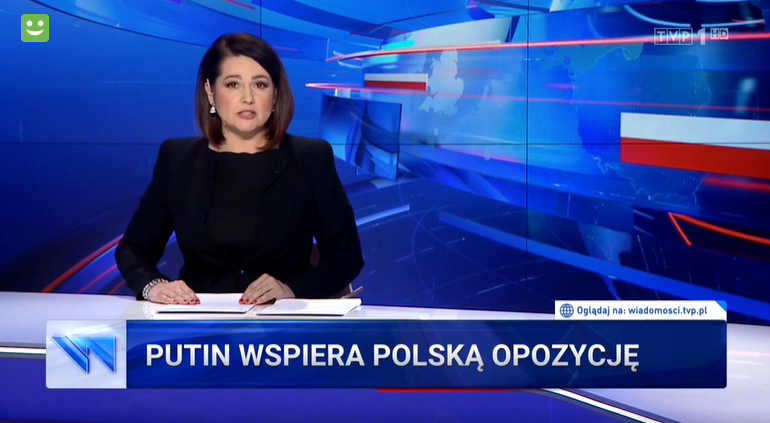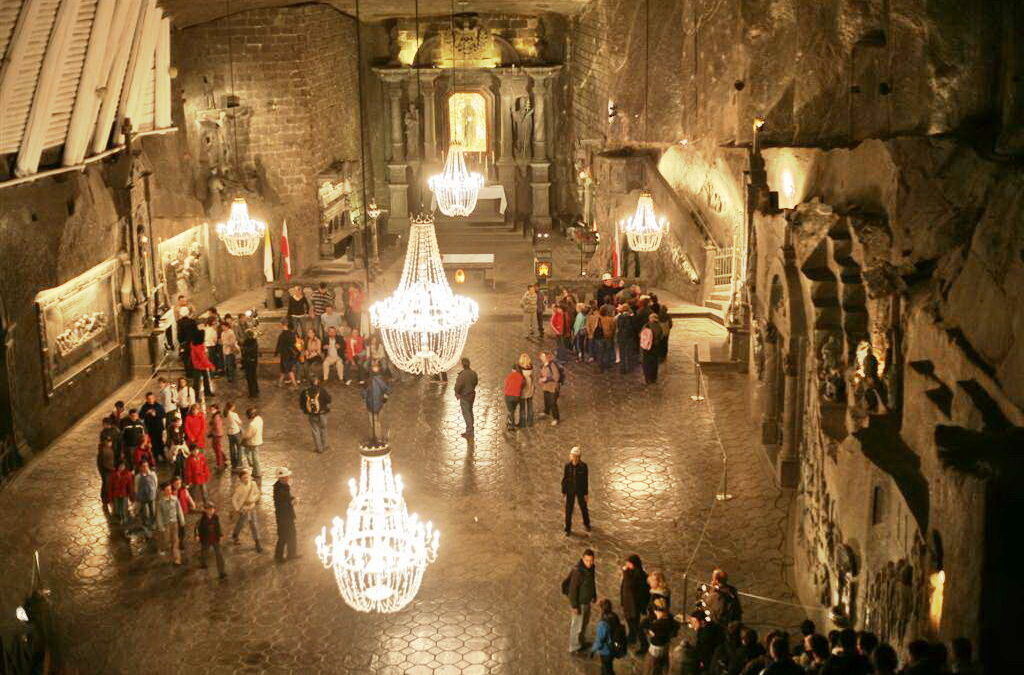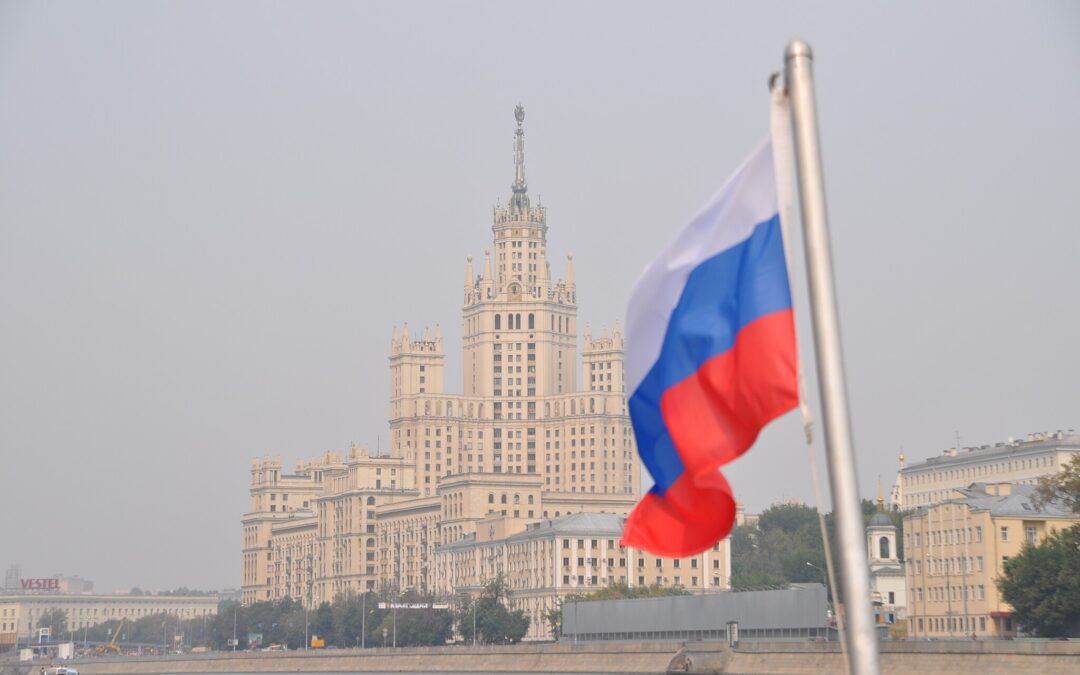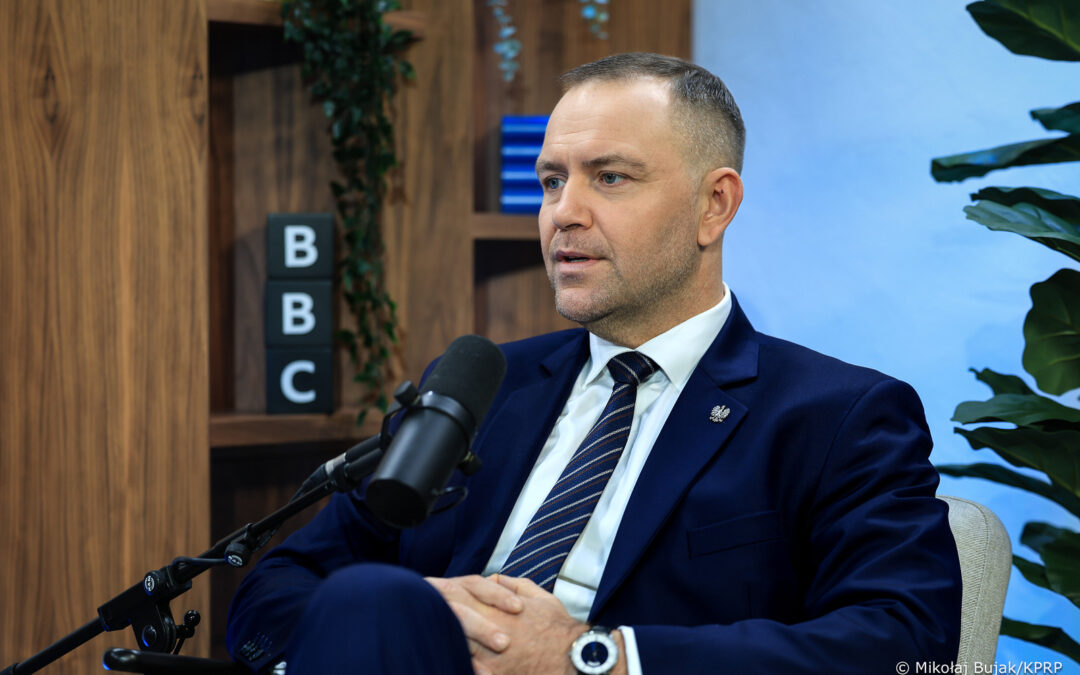Amid a heated late-night legislative session, the lower house of Poland’s parliament, the Sejm, approved almost 2 billion zloty (€470 million) of additional state funding for public media this year.
The ruling Law and Justice (PiS) party argues that the money is necessary to sustain the broadcasters’ finances. But critics note that PiS uses the outlets for its own political purposes, promoting its agenda and attacking opponents. Reporters Without Borders has described them as “government propaganda mouthpieces”.
The proposed funding boost had previously been rejected by the upper house of parliament, the Senate, which is controlled by the opposition, as well as by the Sejm’s culture and media committee. The opposition also sought to derail the bill by proposing that the money instead be invested in improving cancer treatment.
But the ruling Law and Justice (PiS) party pushed through the legislation nonetheless, saying it was necessary to compensate for declining income from the licence fees that help fund public media. The payments are in theory compulsory, but less than 8% of households actually make them.
Media coverage of the debate in parliament was dominated by the actions of one PiS MP, Joanna Lichocka, who made an obscene gesture towards the opposition benches (pictured below).
Posłanka Lichocka po głosowaniu o przekazaniu 2 mld zł na hejt! Ludzie @pisorgpl i @AndrzejDuda pic.twitter.com/WhWWiQhpnO
— Adam Szłapka (@adamSzlapka) February 13, 2020
She claimed to have just been scratching her face, and accused the opposition of “manipulating” her actions. But video of the incident indicates that her actions were indeed directed towards the opposition.
Lichocka’s gesture, and her attempt to explain it, quickly became a meme on Polish social media, with people posting films in which they wryly thanked the government for spending money on state media rather than healthcare while “scratching their face” with their middle finger. This included one by a father alongside his daughter in hospital.
Specjalne podziękowania od ojca chorej dziewczynki. Serdeczne pozdrowienia przekazuje dla @KurskiPL @DHolecka a ja film dedykuję @JoannaLichocka ??? pic.twitter.com/LEPt69KDaS
— Prezes Fabryki Granatów (@Prezes_Fabryki) February 14, 2020
Further controversy was aroused by Donald Tusk, the former prime minister and ardent opponent of PiS. Tusk, now president of the European People’s Party, tweeted that the difference between the two sides in parliament is that “the opposition want to spend two billion on oncology, and PiS on cancer”.
To bardzo subtelna różnica: opozycja chce przeznaczyć dwa miliardy na onkologię, a PiS na nowotwór.
— Donald Tusk (@donaldtusk) February 13, 2020
By “cancer”, Tusk was referring to public media in Poland, which – though always influenced by whichever parties are in power – have been brought under unprecedented political control by PiS since it came to office in 2015.
News broadcasts on state television, which is run by former PiS politician Jacek Kurski, have in particular been used to praise the government and attack the opposition – in violation of the statutory obligation for public media to provide balanced coverage.
Under PiS, Poland has dropped from 18th to 59th place in the World Press Freedom Index compiled by Reporters Without Borders, whose latest report notes that Polish “public media have been…transformed into government propaganda mouthpieces”.
State TV reported on today's @donaldtusk speech in Warsaw by showing images of Hitler and Stalin dividing up Poland while the reporter said 'historical connotations from that period echo regularly in Tusk's statements'.
The segment was headlined 'Poles don't want Tusk's return' pic.twitter.com/Fp2kQxpb1S
— Notes from Poland ?? (@notesfrompoland) May 3, 2019
Following October’s parliamentary elections, OSCE monitors noted that “clear media bias…especially [from] the public broadcaster…undermined voters ability to make an informed choice…[and] amplified the advantage of the ruling party”.
Even the deputy prime minister, Jarosław Gowin, admitted that “the tone of TVP’s message…is harmful” and should be addressed.
Since then, however, that tone has remained the same. In January, the Media Ethics Council accused TVP of mounting a “witch hunt” against the opposition Senate speaker. Its daily allegations of corruption against him, unsupported by evidence beyond anonymous claims, “violated all seven principles of the Media Ethics Charter”, said the council.
The news tonight on Polish state TV:
– "Putin supports the Polish opposition"
– "Attack on Polish sovereignty"
– "Abroad, they do not want a strong Poland" ("some countries do not like that Poland is becoming key to the whole EU economy")
– "Opposition beyond reason and decency" pic.twitter.com/vmdqlsXXML— Daniel Tilles (@danieltilles1) January 28, 2020
In defence of TVP, supporters of PiS argue that public media have also been exploited by previous governments. They also claim that the current stance of the channel is necessary to bring pluralism and balance to a media landscape previously dominated by outlets that lean towards the opposition.
Yet both main parties do agree that a solution is needed to resolve public media’s funding crisis. Of the estimated 13 million households that should in theory pay licence fees, less than 1 million actually (under 8%) actually do so.
This compares unfavourably to other countries, notes website Money.pl. In Germany, only 2% evade payment, while in Slovakia and the Czech Republic the figures are 4% and 8% respectively. And this is despite Germany’s fee being three times higher than Poland’s and the Czech Republic’s being 28% more expensive.
Both the former PO-led government of 2007-2015 and the current PiS administration have periodically mooted reform, but never followed through. Meanwhile, revenue from licence fees has continued to drop: from over 900 million zloty annually at start of the century to an estimated 650 million zloty last year.
To compensate for this, PiS has in each of the last four years voted to provide one-off payments to public media. This has risen from 300 million in 2017 to almost 2 billion zloty this year – around triple the amount estimated to come in from licence fees.
Main image credit: TVP Wiadomości

Daniel Tilles is editor-in-chief of Notes from Poland. He has written on Polish affairs for a wide range of publications, including Foreign Policy, POLITICO Europe, EUobserver and Dziennik Gazeta Prawna.




















